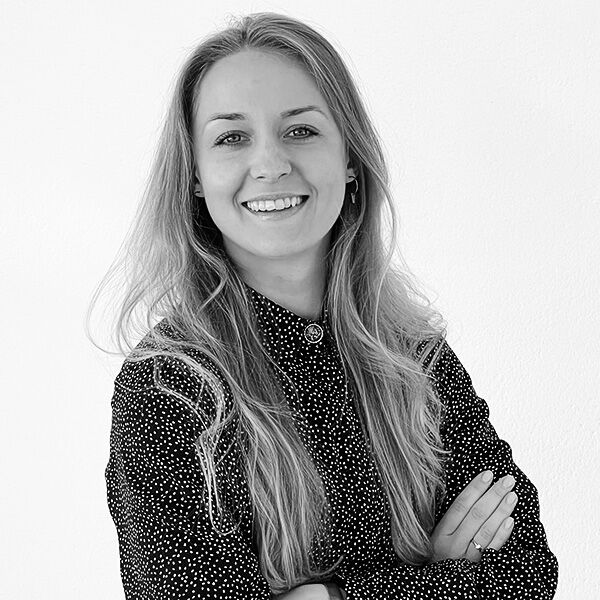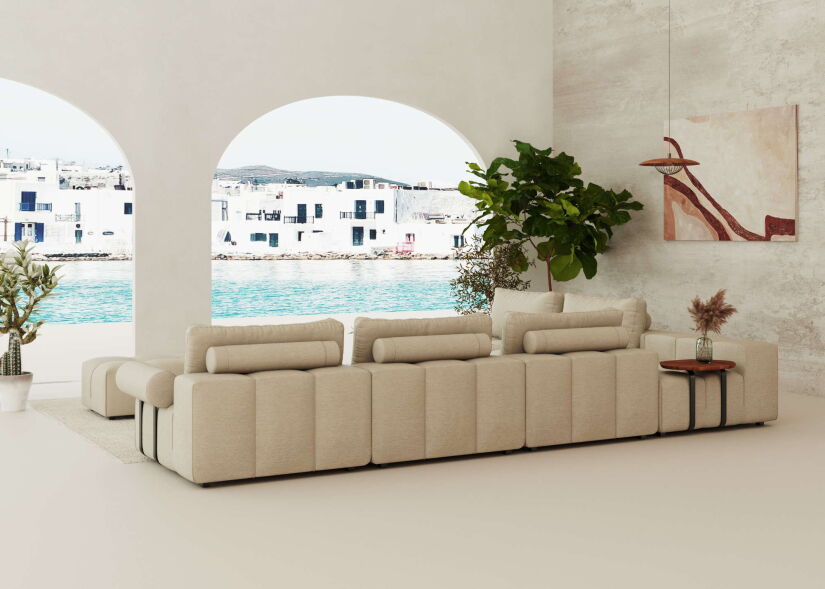
The furniture industry is currently undergoing a revolution, where the most intriguing design concepts are emerging as the winners.
Today, more than seasonal trends and familiar faces in advertising, the interior design world values innovative lines, unconventional fabrics, and furniture that capture attention. Preferably those with Polish origins. We are talking to Polish designer, Ewa Półtorak living in Spain, who designs furniture for top domestic manufacturers. We discuss her inspirations, the beginnings of her design journey and her daily life in Spain where she lives and works.Last year,
during Expo Saragossa, the Polish brand Nobonobo unveiled a new addition
to its portfolio for the first time – a Lanube sofa and bed, designed by you. There is a reason why this premiere took place in Spain. You
honed your skills here, studying, among other things, industrial design in
Valencia. Where did your fascination with the Iberian Peninsula come
from and what has made your name increasingly recognisable in Poland?
My fascination with Spain probably started during my very first holidays in this country. As an eight-year-old girl, I didn’t know it at the time, but several years later, when choosing the university where I would study as part of the Erasmus program, I had no doubt it would be Spain! As it turned out, The Technical University of Valencia(UPV), has one of the best design departments, which attracts students from all over the world! I have no doubt that these experiences have changed me, opened me up and allowed me to feel confident that what I do, I do well.
How did your
collaboration with Nobonobo come about?
You could say by chance, although I believe that coincidences do not exist. I worked in a design studio in Valencia for several years. However, it had always been my dream to design furniture that I could sign with my name. Once I had decided to start my own path in this field, I realised that my colleague Christian, whom I had met at Erasmus, had designed excellent tables for Nobonobo. I noticed that the brand works with designers from all over the world, and I was eager to learn how to initiate such collaboration. I reached out to Tomek Matejczyk to seek advice, and before long, we were discussing our first joint project. At this point, nothing was certain, but my motivation and enthusiasm generated so many ideas that the Lanube collection came to life a few months later. The openness of the owners made me dare to take the next steps. I am now in a place I only dreamed of not long ago. The openness of the owners encouraged me to take next steps, and now I find myself in a place I had only dreamed of not long ago.

You create
structures that gain recognition worldwide. What does your work behind the
scenes look like? Is it a continuous process of experimentation?
I would certainly like my designs to please the widest
possible audience - because it is with them in mind that I start each working
day. This is why I am not limited by location or purpose. Recently, for
example, I worked on a collection of outdoor furniture for an American brand.
At the moment, however, I am focusing primarily on the Polish and Spanish markets. You will soon be able to see my first collection here locally- in Valencia- at the Habitat Expo in Valencia. My work is a continuous process of experimentation, indeed. It starts from sketches and goes through scale models, and lately, I have also been using 3D printing. It’s about constantly learning production processes, working with materials, and craftsmanship. However, that is not all. New collections emerge through constant observation of nature of nature, the environment, and relationships. I also rely on intuition and naturally decide on the final form of the furniture or colour combinations.

The Spanish
design style is mainly associated with natural materials, versatility and a
wealth of intense colours. This is due to the centuries during which many
influences have permeated the country: from Islamic to Moorish. Are its
elements reflected in your designs?
From start to
finish, I remain devoted to natural materials in my projects. I dislike
imitations and firmly believe that only real wood, stone or fabrics made from
natural fibres not only create timeless designs but also have a positive impact
on the user’s experience and quality of life. Another important element in my
projects is colour. I delved deeply into its psychological and cultural aspects
even while writing my master’s thesis. However, much depends on the context in
which the project is created- sometimes, inspiration comes from the vibrant
colours and sunshine of the South, at other times, the starkness of the Italian
Dolomites, or northern greyness and rain. Materials and colours are just a few
of the many components that influence the final design.
The Lanube
collection was very well received by interior designers, quickly becoming a
bestseller for the Nobonobo brand. What drove your inspiration when creating
the design for this sofa and bed?
Clearly defined
guidelines for this project. The sofa and bed were meant to be very comfortable
but not overly soft, and we achieved this effect through distinctive stitching
and subtle quilting. From the very beginning, I knew it would be a modular sofa.
Such a concept has the potential to align with the needs of many users in
various interior settings.
There has
been a lot of talk about sustainability in the context of design recently. How
does it fit into your daily work and life?
As you mentioned - sustainability is
an integral element not only in my work but also in my everyday life. In
reality, I seamlessly integrate design into my everyday life, not just when I'm
working. I feel like being a designer is a 24/7 role. At home, I have several
second-hand pieces of furniture, an almost 30-year-old floor, and I am
definitely not a fan of frequent renovations that serve short-term purposes. I
try to buy products that are better quality, which will serve years and will
age in a unique way. Similarly, in design- using top-quality materials as well
as creating designs that are not just temporarily trending, but timeless - is
definitely a responsible approach.
I'm convinced that the furniture I design will serve people for years, and then...it will go on the second-hand market and continue to fulfil its purpose.
For more
information, please visit the website: https://nobonobo.pl/
***
Nobonobo is a Polish brand with headquarters in
Łodygowice. From the onset, the company concentrated on manufacturing
high-quality upholstered furniture, mainly sofas.
Their models are available in selected furniture stores
throughout Poland. The brand also is constantly expanding its distribution to
foreign markets.